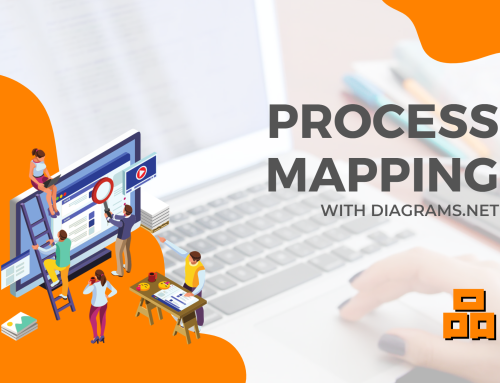To illustrate the importance of the QMS, try to imagine this …

Don’t make your Quality Management System give you future headaches!
… The quarterly accounts land in your inbox, and they look excellent. Better than ever, actually. Or rather: the last two quarterly reports look significantly better on the results page than the previous two. The company’s revenue has risen steadily and exceeds your target and budget in several areas. Very good.
A glance at the figures in the accounts reveals that you have cut in the area of 80% of your expenses in the last two quarters. It looks a bit too good, so you call Joe in the accounting department and ask him if you have not had more expenses than the few posted. “Nah …”, Joe replies, “There have been a lot of the little fewer expenses as always, but no one of particular importance, so we have chosen not to post them!”.
You know it. We know it. Quarterly accounts or financial statements are worth nothing unless all figures are posted. Therefore, this scenario for most of us seems completely unrealistic. All expenses and income are recorded for the accounts to be used as a management tool – in addition to complying with legislation. All data has to be recorded. Otherwise, the financial statements would be nothing more than useless.
However, the above scenario is still happening in another system. Namely the quality management system. What does it look like with the company’s quality management system?
It isn’t easy to make decisions on a partly-finished financial report
Fortunately, the reality is completely different from what this article started with. At least with regard to the accounts. The company’s accounts are a carefully prepared tool on which management makes decisions. Rational decisions on a solid data basis – all posts, transactions, and registrations entered into the accounts.
It would be difficult to make any decisions if the accounts were semi-finished and inadequate. If employees from different departments assessed bills to either be posted or not posted based on an estimate of their importance. In that case, the company’s financial statements would appear completely useless. And could not be used as a tool for making decisions.
Unfortunately, this is true for many companies when it comes to quality management. Errors and shortcomings are not registered in a department, while only severe delays and serious customer complaints are registered in another department. It can hide problems with suppliers, materials, processes, or products. Problems that ultimately result in a lack of earnings.
The Management GPS
When the management of the company uses the quarterly financial statements as a GPS to assess whether the company is on the right track in terms of budgets and business plans, they always do so on the basis of carefully prepared statements.
Similarly, the company should use its quality management system to assess its health. Here, management can see all that can not be read directly from the financial figures in the accounts. If the expenses have risen in the accounts, one can find the explanation in the quality management system by analyzing error reports and supplier problems, for example. There may have been many internal errors in the case of defective production, material waste, and wasted man-hours.
With proper registrations and implementation of the quality management system, it will be possible to find out how and where the problems arise and the reason for them. Has the problem occurred internally in the company or perhaps with or at a supplier? With proper registrations, you can quickly find the cause of the problem and launch solutions that minimize the risk of repeating or, even better, completely eliminate the risk!
But it requires quality management to be a natural part of the workflow in every corner of the company. It is important to keep in mind that quality management is not just something you can add to an employee’s responsibility list. It is a management task that must be implemented throughout the company, and this is best done if management takes the lead. The result will be a solid database that can be the base for navigating and making decisions – just like financial statements.
Deviations in the accounts always cause the warning lights to flash
Problems in the accounts are immediately discovered. The focus is on the numbers. As soon as there are discrepancies in the accounts, the warning lights flash at the management. It is an indented response pattern in any organization.
But it requires that everything is posted. It requires commitment from the management and all employees. The same applies to the quality management system when it comes to the registration of errors, shortcomings, delays, and complaints. The company will first be able to detect the problems on time when everything is recorded in time. This data will be used in a proactive way as a management tool precisely as the company’s accounting system is used.
Of course, it looks good on the paper if there are no deviations. That’s what everyone thinks. But the problem with the non-existing registration of deviations is that the company loses the base of accurate decision-making. Instead of being able to navigate correctly, it is now navigating blindly based on perjury and guesswork. In the long run, this approach will also affect the financial accounts, but it may be too late or impossible to find the cause and, therefore, the solution.
“Data is only worth something when they are used”
Occasionally we meet skepticism when discussing quality management with management and employees in the organizations. This usually has something to do with hopelessness. This occurs because the experience has shown many that the records and reports that have been made have never been used. Let’s compare it with the accounts again – any expense in the company will always be posted in the accounts. Everybody knows that all transactions are essential to the overall accounts. The registration of any transaction, large or small, provides the basis for making calculations and comparisons across departments, accounts, and periods.
A digital quality management system works exactly the same way as the digital accounting system – any registration is included and impacts the overall result. When we perform analysis, calculations, and measurements across departments, suppliers, products, processes, and periods in the quality management system, each registration is vital. Data is only worth something if it’s complete and used.
Use the quality management system to navigate …
– in precisely the same way as you use the company’s accounts
There are lots of benefits for companies using their quality management system to navigate in exactly the same way they use their accounts. The management’s GPS, is an integral part of the company’s workflow, where errors, shortcomings, and delays are recorded at the same level as any transaction in the accounting system.
You use Wismatix QMS at the same level as you use your accounting system. It’s fast and easy to use, and you get statistical data for product errors and deviations quickly and in real-time, and when you make decisions on the basis of factual analysis, you make the right decision on time exactly as you do when you are basing your decision making on the company accounts.






